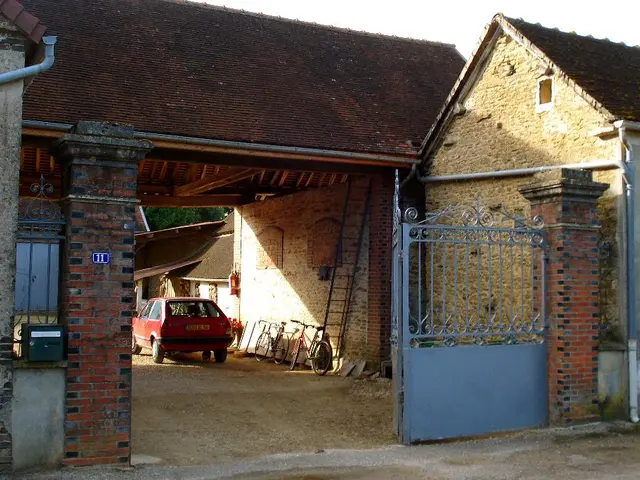Comparing home equity loans versus home improvement loans: Which option is more suitable for a remodeling project?
Home improvement loans and home equity loans are two popular financing options for homeowners looking to renovate, repair, or even purchase another property. Here's a breakdown of these loan types to help you make an informed decision.
Home improvement loans are unsecured personal loans, typically larger in size, designed specifically for renovation projects. Unlike secured loans, they don't require any collateral, but approval is based on your creditworthiness and financial profile. The interest rates for these loans have a wide range, currently from around 7 to 36 percent.
On the other hand, home equity loans are second mortgages where borrowers convert their homeownership stake into cash, using the home as collateral. These loans have interest rates that are typically much lower than personal loans and other forms of consumer debt, averaging around 8.5 percent right now. Home equity loans carry longer terms and lower interest rates, but they can put a home at risk if payments are missed.
The value that a homeowner owns outright, after subtracting the mortgage, is known as home equity. Most lenders allow borrowers to borrow up to 85% of a home's value for a home equity loan. This means that if your home is worth £500,000 and you have a mortgage of £350,000, you could potentially borrow up to £175,000.
Home improvement loans are typically repaid over one to seven years, while home equity loans are repaid with a fixed monthly payment over 5 to 30 years. The lowest interest rates for a home improvement credit line are between 2% and 3% per year, offered with flexible terms by several lenders. One entity specifically offers 3% per year for credits ranging from €4,000 to €2,000,000.
Home equity loans can be risky because your home is collateral, and you risk losing it if you miss your payments. Borrowers who have owned their homes for many years and have paid off the original loan amount or bought it with cash are best positioned to take out home equity loans. Those who don't have significant equity in their homes or prefer not to tap into it may find home improvement loans a more attractive option.
It's important to note that home equity loans can be used for any purpose, but they are often used for renovations. Those who itemize on their tax returns can deduct home equity loan interest, provided the funds are going to repair, renovate, or improve the residence. Your credit score is a key factor in determining the interest rate for a home improvement loan.
In summary, both home improvement loans and home equity loans offer financing solutions for homeowners looking to renovate or repair their homes. Home improvement loans have higher interest rates and shorter terms, but they do not put the home at risk if payments are missed. Home equity loans, on the other hand, have lower interest rates and longer terms, but they can put the home at risk if payments are missed. It's essential to consider your financial situation and needs before making a decision.








